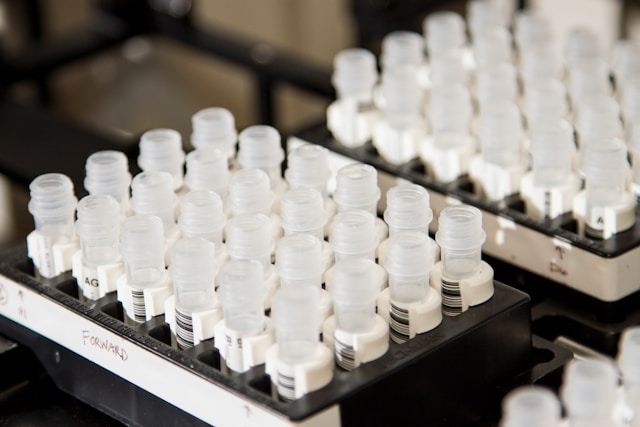Emerging Trends in the AI era for Life Science Sector

Want a glimpse into the future of Medicines and Healthcare products Regulatory Agency (MHRA) AI related regulatory processes in the UK? Early May 2024, MHRA published a policy paper titled “Impact of AI on the regulation of medical products“. This article continues our ongoing interest in the latest development for MedTech regulations, in the UK and aboard.
What does MHRA do?
MHRA regulates both medicines and medical devices. It is the UK’s regulator to ensure any medical products on the UK market is safe and effective, according the regulatory requirements set out in the relevant UK regulations. For medical devices, it is the MDR 2002 (as of May 2024). Obviously, this is a 20+ years old regulation. At the time it was introduced, AI and technology are not as advanced as today. Thus, the rise of AI, the topic of particular concern in the Paper, is changing the entire regulatory landscape.
Three perspectives
The Paper states what has been achieved so far, and what is being planned and could be coming next in 2025 and beyond. As a regulator, MHRA is clearly going through a phase of rapid transition. MHRA, as the UK’s medical regulation body, is considering the opportunities and risks of AI from three perspectives and here are my take-away:
- Balanced regulation: How to balance the risks and innovation potential of AI-related medical products?
- Efficient regulation: How to use AI to improve its service efficiency?
- Effective regulation: How to ensure its regulatory effectiveness in the AI era?
Five trends in the BioTech and Healthcare industry
The most interesting part of the Paper is Part-3. It reflects what MHRA ‘sees’ the changes in the outside world where AI is being rapidly adopted across the industry and how these changes might impact its operation. So, what are the changes in the outside world that MHRA ‘sees’.

Although it is the shortest section in the Paper, it actually provides lots of insights on what MHRA ‘sees’ from their interactions with the industry as the industry starts to enter the AI era. Here is my personal highlights from the Paper:
1. Data processing assurance is required for AI related medical products – “(relating to regulations) there are requirements around quality management systems to provide assurance about the standards under which data is processed.”
2. Best practice in use of AI is evolving – “develop best practice in use of AI across organisations, with a view to international alignment of expectations to avoid burden on both industry and regulators.”
3. New types of evidence could emerge: The nature of the evidence considered changes – “the use of in silico data in the place of animal models”
4. Disruptive ways in medicine development could emerge: The speed of new medicines can be developed is accelerating – “the pace at which new medicines can be developed for example through the use of AI to reduce the costs and time invested in failed molecules”
5. New clinical trial processes leading to precision medicine could emerge: Clinical trial design could change, and this could lead to more personalised medicines – “It is also likely to impact on clinical trial design and is an enabler of personalised medicines.”
Do you see these changes in your life science organisations too? What are your views on how AI adoption across the Life Science sector might impact regulations, regulators, and manufacturers? Do you think the rapid embodiment of AI and automation across the sector would lead to a tsunami of new medical products on the market? Or would be just the opposite due to the increased complexity in regulations and regulatory processes? Thoughts are welcome!
How can Chilton help
You can find more about Chilton Computing’s medical regulation related articles here.
Looking for a contract development service provider?
This article gives you insights into our research in medical regulatory navigation. We are a specialist contract product development organisation with expertise in AI, enterprise software development, and medical regulations. We can undertake contracts to help Contract Research Organisations (CROs), Contract Manufacturing Organisation (CMOs) and medical testing laboratories to develop and integrate productivity-enhancing workflows to maximise their value-add for their customers in Life Science sector.
Want to get your medical device ready for the USA market?
Are you thinking about designing new MedTech products and want to find out the competitor landscape in the USA? Here is Chilton’s medical regulatory intelligence service – navbook.ai. It can offer you well-rounded insights into all the medical devices approved by the U.S. Food and Drug Administration (FDA) since 1976, when the agency started to have database catalogue of medical devices. Arming with these information will help you
- Reduce the risks of developing products for a market that is already saturated with similar products;
- Study your competitors’ regulatory requirements/standards that are needed for a niche MedTech market;
- Identify the most suitable partners (e.g. representative, distributors, and certified manufacturing service providers) for your product journey
Should you be interested in any of these, please get in touch with Erica.
Disclaimer
This article is written by Dr Erica Yang, CEO of Chilton Computing. It is a personal reflection of the said paper made available by MHRA. It does not necessarily represent the views of Chilton Computing Ltd. You are welcome to contact Erica directly via Dr Yang’s personal LinkedIn page to proceed further discussion.

